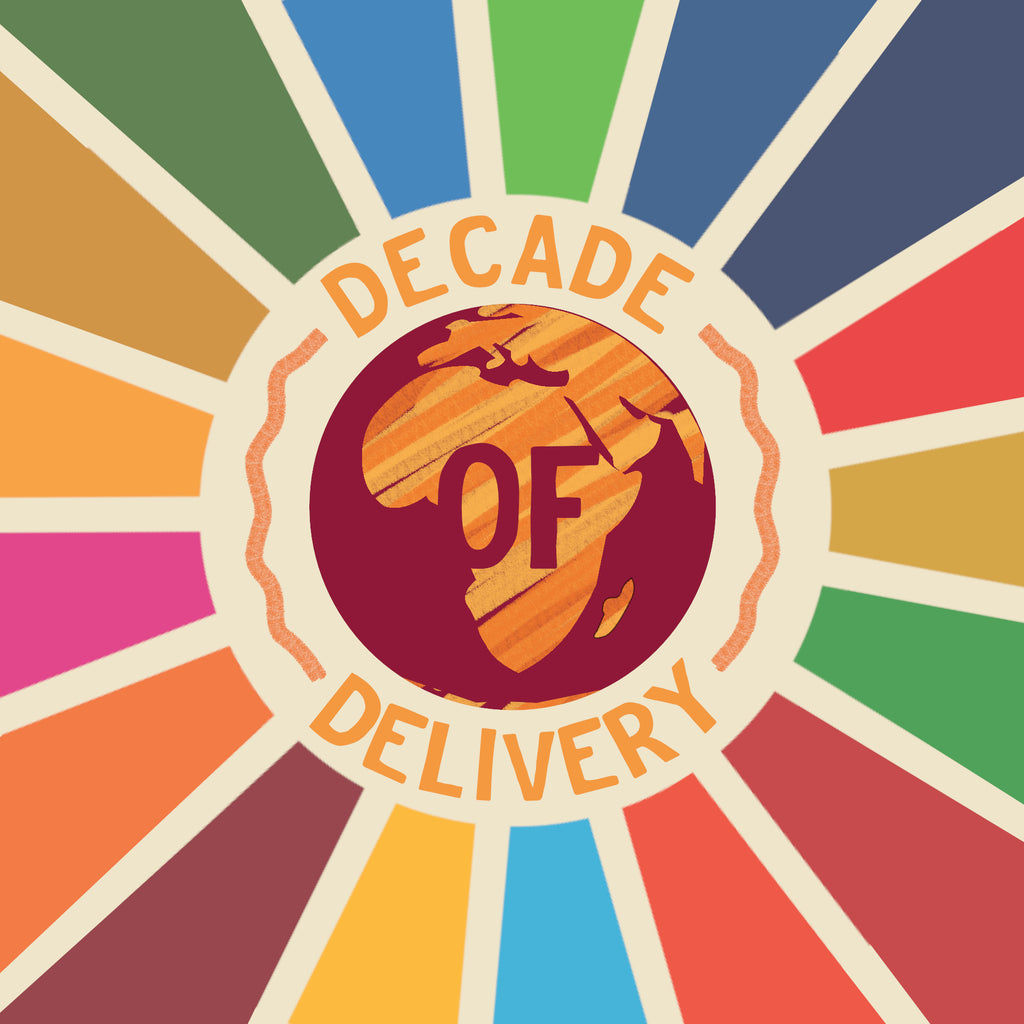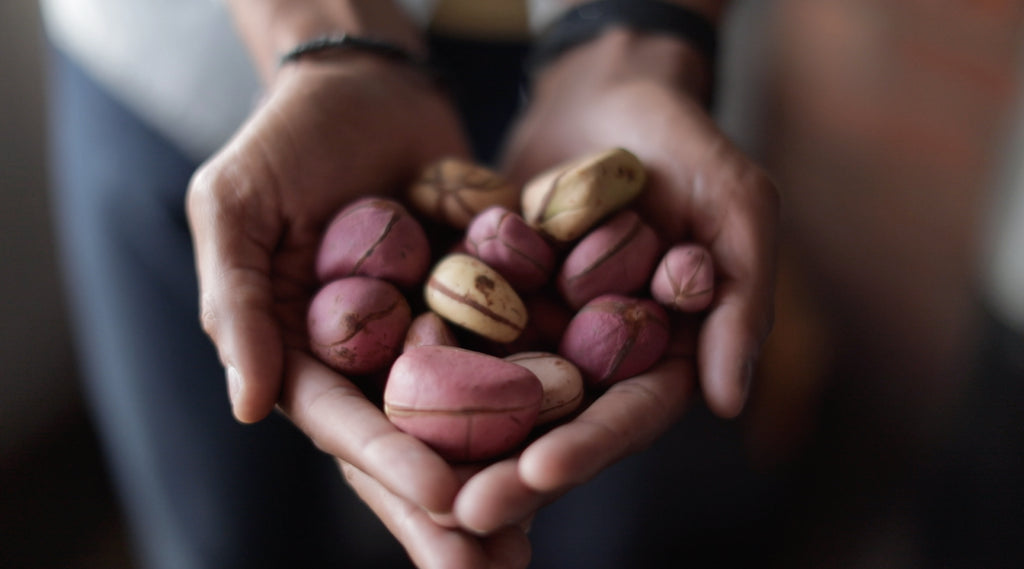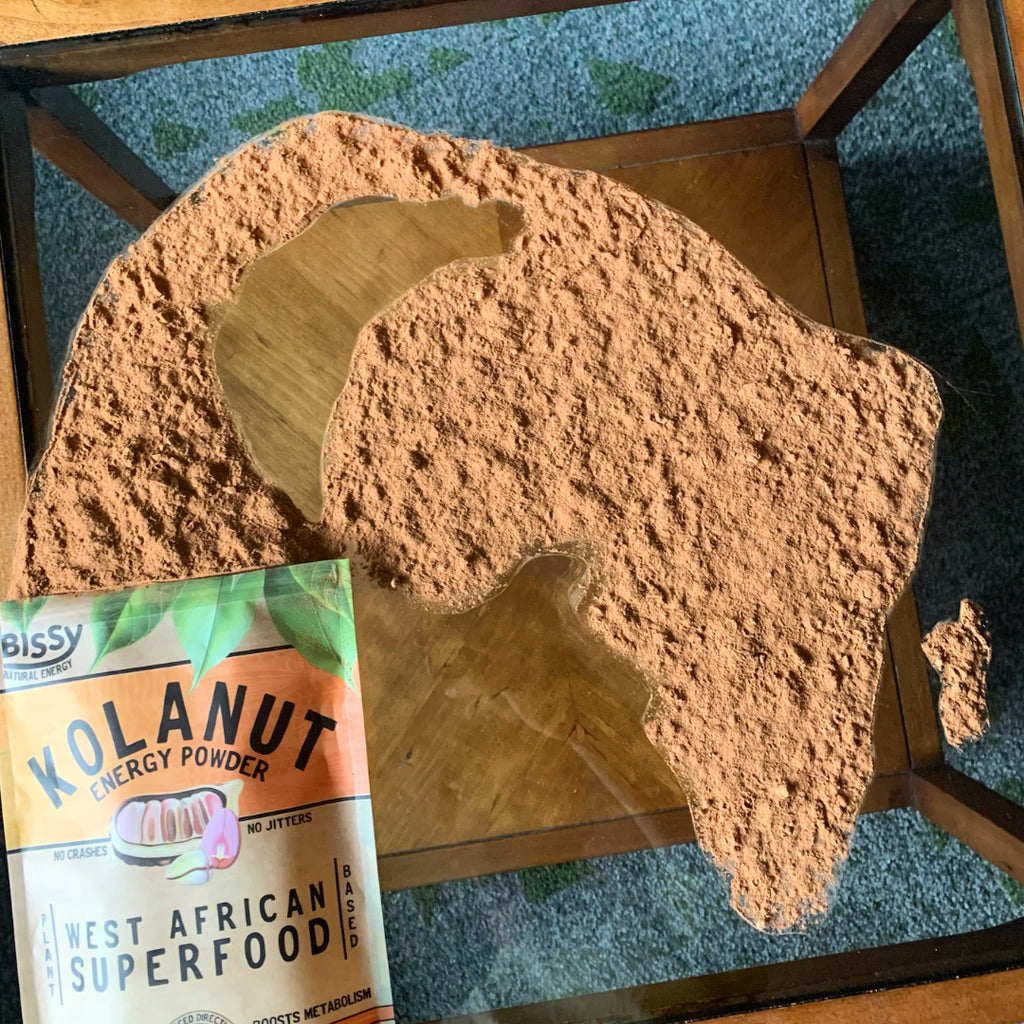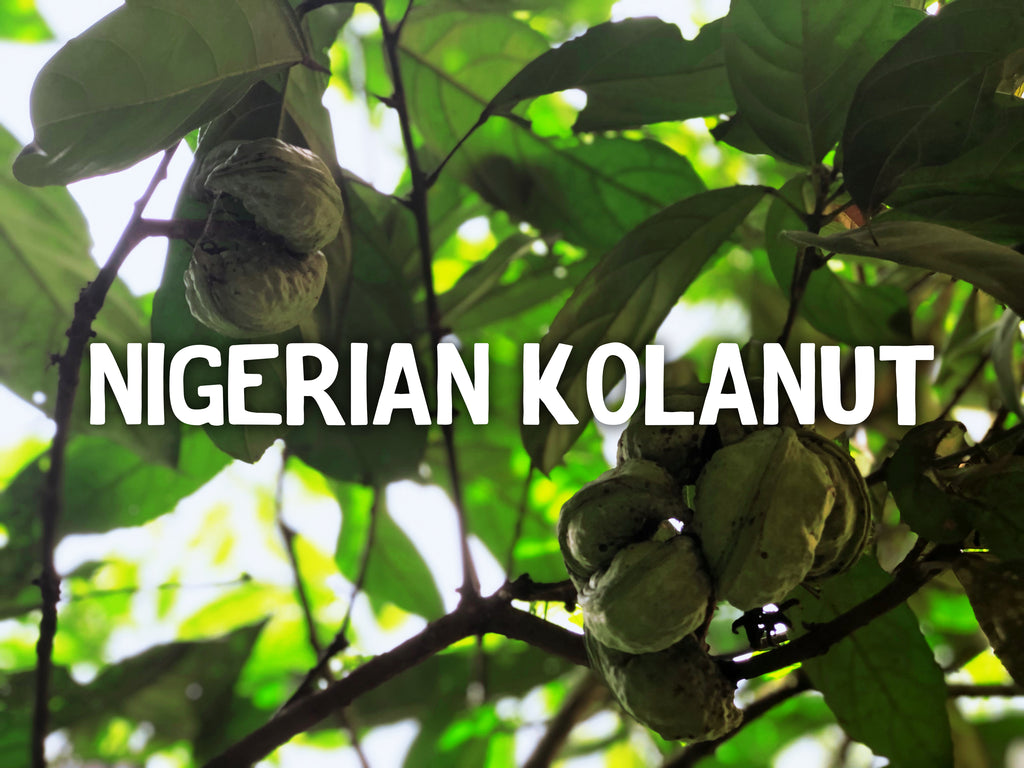2020 Sustainable Development Goals
Posted by James Swinyard on

2020 Bissy Sustainable Development Goals
At Bissy we are committed to advancing the development of healthy and natural kolanut products. The idea that “healthy and natural” should extend beyond the nutrition label is our gold standard and is embodied in each part of our value chain; from farm, to bottle, to you.
Beginning the ‘Decade of Delivery’, we want to start the tradition of goal setting with purpose. Aligning and realigning ourselves every year with the UN Sustainable Development Goals (SDGs) ensures that we stay on track with the 2030 targets. As an emerging food and beverage brand, we have a special opportunity to set a standard of transparency among start-ups, small and medium enterprises, and conglomerates alike. Furthermore, our mission to support the growth and development of farmers in Nigeria through business partnerships inextricably links us to the UN’s SDGs. The past and present exploitation of the Nigerian people, environment, and ecology is a giant oily smudge on top of the opportunity for prosperity that exists in the region.
With the help of our partners at the Cocoa Research Institute of Nigeria (CRIN) and the International Living Future Institute (ILFI), we have identified 11 of the 17 SDGs that Bissy Energy’s core business can immediately impact:
- No Poverty
The UN’s most recent data explains that more than 700 million people (or 10% of the world population) still live in extreme poverty and are struggling to fulfill the most basic needs including health, education, access to clean drinking water, sanitation, and more. The majority of people living on less than $1.90 a day live in sub-Saharan Africa. Globally, the poverty rate in rural areas is 17.2% - more than three times higher than that in urban areas.
These statistics are reflected in Nigeria particularly. Today, it is expected that six new people fall into extreme poverty every day in Nigeria, consistently adding to the roughly 87 million people who are already destitute.
In partnership with CRIN, Bissy will become the first registered Fair Trade operators in Nigeria and the first to ever register the kolanut as a certified Fair Trade ingredient through the certification of our smallholder kolanut farmers in rural Osun State. Fair Trade commits Bissy to paying above market rates for our premium kolanut supply, pushing our small group of farmers above the UN’s $1.90/day poverty line. In 2020, Bissy expects to put over $1,500 into our farmers pockets and help them explore new streams of revenue through agroforestry, biodynamic farming techniques, and the sale or use of kolanut waste products.
- Zero Hunger
With poverty, often follows hunger. According to the UN, Sub-Saharan Africa remains the region with the highest prevalence of hunger, with the rate increasing from 20.7% in 2014 to 23.2% in 2017. In sub-Saharan Africa, the number of undernourished people increased from 195 million in 2014 to 237 million in 2017. Poor nutrition causes nearly half (45%) of deaths in children under five – 3.1 million children each year.
As with poverty, the statistics in Nigeria are a reflection of the broader Sub-Saharan Africa statistics on hunger. According to the World Food Program, three million Nigerians are food insecure while one in five children between the ages of six months and five years are considered to be malnourished. A dependency on oil since the 1960’s has caused Nigeria’s once mighty agricultural sector to deteriorate such that the country has started importing agricultural products it once grew, raising prices and wreaking havoc on local communities.
In 2020, Bissy intends to work closely with its partners at CRIN to evaluate and begin the implementation of agroforestry and biodynamic farming techniques to diversify farmer crops and increase caloric outputs for the local communities.
- Quality Education
Over 265 million children are currently out of school and 22% of them are of primary school age. Even the children who are attending schools are lacking basic skills in reading and math. More than half of children that have not enrolled in school live in sub-Saharan Africa.
In Nigeria, 10.5 million of the country’s children aged 5-14 years are not in school and adult literacy is at only 59.6%, though literacy has increased substantially from 51.1% in 2008. Bissy, in partnership with CRIN, will provide vocational training and education in agroforestry, biodynamic farming, and agrobusiness to our seven smallholder farmer partners in Osun State.
- Gender Equality
Globally, women are just 13% of agricultural land holders and women in Northern Africa hold less than one in five paid jobs in the non-agricultural sector. The proportion of women in paid employment outside the agriculture sector has increased from 35% in 1990 to 41% in 2015. In the United States, women earn only 80.7 cents for every one dollar a man earns on average and is at least three times less likely to hold a leadership role at a firm. More than 100 countries have taken action to track budget allocations for gender equality.
We can make an immediate impact on this goal, both at home in the United States as well as in Nigeria. At home in 2020 we aim to have at least one female join our board of directors and are committed to equal pay for equal position. In Nigeria, we intend to partner with female owned AACE Foods for the processing of our kolanut and to encourage our farmers to proportionately elect female representation to their Fair Trade Committee to help inform decisions made on community development projects in Osun State.
- Clean Water and Sanitation
Water scarcity affects more than 40% of the global population and is projected to rise as over 1.7 billion people are living in river basins where water use exceeds recharge. Right now, 2.4 billion people lack access to basic sanitation services, such as toilets or latrines and more than 80% of wastewater resulting from human activities is discharged into rivers or sea without any pollution removal, resulting in nearly 1,000 child deaths every day due to preventable water and sanitation-related diarrheal diseases. Additionally, approximately 70% of all water abstracted from rivers, lakes and aquifers is used for irrigation.
In Nigeria, there is no shortage of fresh water. According to the Food and Agriculture Organization of the United Nations, only 23% of the renewable water sources from surface water rivers and the ground water aquifers are used each year. However, wastewater is often not treated, and sanitation issues do exist.
At Bissy, we can limit our use of water by working with our farmers to implement agroforestry techniques such as cover cropping that help maintain soil moisture levels and reduce nutrient runoff, which can contaminate water systems. We are also committed to ensuring that our farmers do not use toxic chemicals in the production of their new crops. Currently, our kolanut is grown with nothing but rain and sunlight, using natural solutions to pests, such as ant colonies to maintain the kola weevil population, a common predator to the kolanut.
Domestically we help to reduce water contamination by using glass packaging instead of plastic. Each year, the production of plastic bottles requires > 17 million barrels of oil to meet US demand alone; the same oil that has destroyed much of the Niger Delta in southern Nigeria, with an estimated nine million barrels spilled since 1950 and some estimates as high as 100 million barrels. Once produced and consumed the bottles then find their way into our landfills at a rate of 38 billion bottles per year, resulting in ground water contamination, ocean pollution, and the micro plastic epidemic. Our bottles are made from glass, which is infinitely recyclable and does not breakdown into volatile chemicals when thrown out or left in the environment.
- Decent Work and Economic Growth
Roughly half the world’s population still lives on the equivalent of about $2.00 a day, with global unemployment rates of 5.7%. Having a job, in many places, doesn’t guarantee the ability to escape from poverty. This slow and uneven progress requires us to rethink and retool our economic and social policies aimed at eradicating poverty.
Over the last 20 years in Nigeria, youth unemployment alone has surged to over 60% as a result of the country’s focus on oil profits. The neglect of other sectors has created widespread poverty and unemployment, giving insurgencies like Boko Haram the fuel they need to enlist young militant recruits and terrorize the northeastern states. One solution is to invest in Nigeria’s vast arable land, which accounts for 40% of its total area. Through stewardship of Nigeria’s available farmland, the country can accelerate the transition back to a net export economy and begin to build manufacturing and processing capabilities, graduating its workforce into higher paid and higher skilled jobs.
Bissy wants to help spark this movement by increasing farmer yields and helping invest in technologies to process ingredients at a local facility, thereby allowing our farmers to capture more value from their goods. In 2020 we will begin the process of increasing farmer yields through agroforestry and biodynamic farming practices and will aim to implement processing into our farmer collaborative’s value chain before 2025.
- Responsible Consumption and Production
This goal comes down to the way we consume and produce water, energy, and food. According to the United Nations, humankind is polluting water in rivers and lakes faster than nature can recycle and purify while excessive use of water continues to contribute to global water stress. As our water becomes increasingly polluted by plastics, natural resource extraction, chemical runoff and a myriad of other factors- the energy we use to create and ship those products is increasing our carbon footprint. Improvements in economic prosperity have ushered in a new era of global consumerism and unfortunately for us and our planet, our methods of production and consumption are woefully inefficient. As it turns out, our food systems aren’t much more efficient. Each year an estimated 1/3 of all food produced, 1.3 billion tons worth around $1 trillion, ends up rotting in the bins of consumers and retailers, or spoiling due to poor transportation and harvesting practices.
Water
In goal number six we explored how Bissy can reduce its impact on global water systems through the elimination of plastic packaging and chemical free farming techniques that help increase production, maintain moisture and reduce overall water consumption.
Energy
From the beginning, Bissy made an effort to reduce our overall energy footprint by electing to use infinitely recyclable glass bottles and commit to aluminum packaging for later product introductions. Our bottles are only 3.4 oz, reducing the size and weight for shipping. However, when it comes to energy consumption, Bissy can improve greatly.
As it stands, our energy drink is produced in South Korea and shipped via container ship across the ocean. While this was a necessary compromise to avoid plastic bottles, we recognize the current impact of the shipping industry on global emissions and various other types of ocean pollution that large container ships cause. In response, we are committed to relocating our manufacturing to the United States by 2021. We are also intent on working with our smallholder farmers, CRIN, governmental organizations, and other non-governmental organizations to implement biogas production through the recycling of farm waste, including kolanut pod husks, to power homes with energy for cooking, lighting, heating, and cooling. Right now, Nigeria is burning over 180,000 cubic meters of fuelwood per household each year, the equivalent of around 7,200 full truckloads of wood.
Food
In the United States, commercial produce usually ends up in electric coolers within two hours of harvest, staying chilled and fresh until it finds its way onto shelves and into our carts. The vast majority of food in the developed world is wasted in the backs of fridges or on plates at restaurants. Food waste in Nigeria looks much different, where 123 million metric tons never actually make it to the end consumer. According to data from a Rockefeller Foundation study, 45% of food in Nigeria spoils due to lack of cold storage, causing smallholder farmers to lose 25% of their annual income.
Through our Fair Trade Premium Fund, we intend to work with our farmers, CRIN, other government agencies, and non-government organizations to help build infrastructure toward a group of zero waste Bissy Farms with cold storage implemented by 2025.
- Climate Action
Given current concentrations and on-going emissions of greenhouse gases, it is likely that by the end of this century, the increase in global temperature will exceed 1.5°C. The world’s oceans will warm, and ice melt will continue as average sea level rise reaches 24 – 30cm by 2065 and 40-63cm by 2100, turning the myth of Atlantis into a real world crisis for most coastal cities. If things do not change, most aspects of climate change will persist for many centuries even if emissions are stopped.
This is why immediate action is urgently necessary and why Bissy is committed to climate action in the form of outward messaging, strategic partnerships, and investment toward the UN’s target of jointly mobilizing $100 billion annually by 2020 toward mitigation actions. We want to be advocates for a better future and are aligning ourselves with organizations like CRIN and ILFI, who want to create an equitable future. In 2020 Bissy will make our first investment toward climate action through our Fair Trade Premium Fund and conduct our first Life Cycle Analysis to determine our true footprint. Understanding our negative impact will allow us to begin innovating along our supply chain toward a carbon neutral and zero waste future.
- Life Below the Sea
Plankton and ocean plant life absorb around 30% of the carbon dioxide produced by human activity, making the ocean a cushy buffer against the worst effects of climate change. However, a warming ocean and increased acidity levels since the industrial revolution are causing the bleaching of coral reefs and are decimating populations of shelled marine organisms, further disrupting the food chain and the ecology of our oceans. In addition to the burning of fossil fuels, their extraction from the earth is just as detrimental causing over nine million barrels to be spilled since 1950 off the coast of Nigeria alone with other estimates putting the number above 100 million.
However, our visible impact is just the tip of the iceberg. The extent of human impact goes far beyond what is visible in reef bleaching or oil covered deltas. In February of 2019 a report published by Royal Society painted an alarming picture of the true depth to which human activity has impacted life on earth and in our oceans. The report found that among the amphipod (tiny deep-sea shrimp creatures) populations gathered in six deep ocean trenches around the Pacific Rim, including the deepest, Mariana Trench, 72% of individuals (65/90) contained at least one microplastic particle. It has been reported that over 200 species of marine animals alone ingest plastic, mistaking it for food.
Knowing what we know, we made a conscious decision to launch our first product in a glass bottle and commit ourselves to a zero-plastic future. We also aim to move manufacturing to the United States by 2021 in order to eliminate the additional carbon, chemical, and acoustic pollution caused by the shipment of our finished product overseas from Busan, South Korea to the United States.
- Life on Land
Forests cover 30.7% of the Earth’s surface and, in addition to providing food security and shelter, they are key to combating climate change by providing biodiversity and protection to the indigenous populations. At times current, 13 million hectares of forests are being lost around the world every year with Nigeria accounting for an average rate of two million hectares per year, or about 15.4% of the annual global total. Nigeria’s inability to combat deforestation has resulted in the loss of 96% of the country’s total natural forest cover, according to statistics from the U.N. and The Nigerian Conservation Foundation.
Deforestation and desertification, caused by agricultural growth, logging, and Nigeria’s reliance on wood as an energy source, pose major challenges to sustainable development and have affected the lives and livelihoods of millions of people in the fight against poverty. Global Forest Watch, an online tool that utilizes a system of satellites and advanced algorithms to detect deforestation, claims that on average, shifting agriculture and commodity driven deforestation accounts for about 94% of Nigeria’s disappearing tree cover. This fact puts an immense amount of responsibility on the agricultural sector in Nigeria to simultaneously increase the output of agricultural products needed to feed a growing population and boost economic growth, while vastly reducing and eventually eliminating its world leading rates of deforestation.
Kolanut is grown naturally in the forest and as such, Bissy and its partners have an obligation on the frontlines of Nigeria’s fight against deforestation. Agroforestry techniques used by our farmers can help increase yields and soil fertility, eliminating the need or desire for an individual smallholder to engage in illegal tree felling as a means to create additional space for crops or revenue through the sale of the wood as a commodity. Also, investment into alternative means of energy and updated home appliances, such as biogas and clean cookstoves, can alleviate each farm’s need to purchase firewood as a fuel source, a need that drives much of the illegal logging industry.
- Partnerships for the Goals
A successful sustainable development agenda requires partnerships between governments, the private sector and civil society. These inclusive partnerships are built upon principles, values, shared vision, and shared goals that place people and the planet at the center; and are needed at the global, regional, national and local level. This is why Bissy has partnered with the following organizations aligned around the common idea that, if we all work together, we can end poverty, protect the planet and improve the lives and prospects of everyone, everywhere.
- The Cocoa Research Institute of Nigeria (CRIN)
- The Osun State Kolanut Association
- Fair Trade USA
- The International Living Future Institute (ILFI)
A strong foundation is key to the future success of our mission and we believe that foundation has been laid. In 2020, we will pursue the UN Sustainable Development Goals with laser focus in hopes that we can create a better future for the people in our circle of influence and encourage others to do the same.
Stay plugged into our progress by subscribing to our email updates and by following us on social media!








